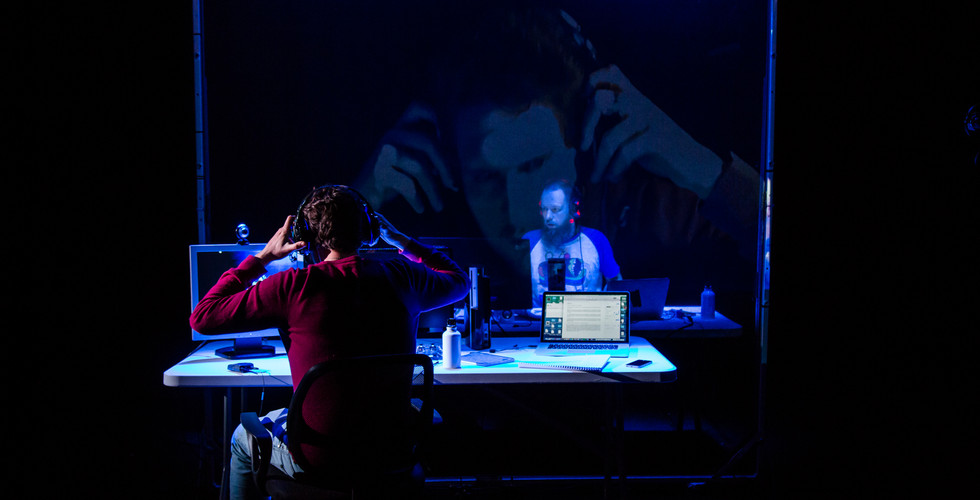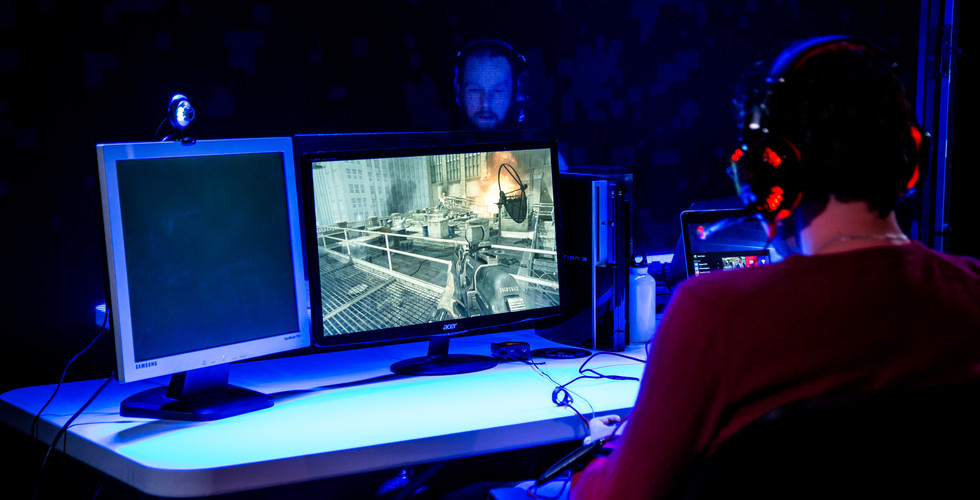Review: The Believers Are But Brothers
- May 14, 2019
- 4 min read
By Matthew Pritchard
Javaad Alipoor’s one man show The Believers Are But Brothers is really good, go and see it.
I went in basically blind and I’m glad I did, it’s an intense, sometimes overwhelming blend of performance, multimedia and whatsapp messages, all with the purpose of exploring the ways in which young men are radicalised in a digital world that, while intangible, has very real ramifications outside of a world of ones and zeroes.
So, if you’re keen to check it out and want to just walk in without really knowing what to expect, go do that. Come back and read this later if you want. It’ll still be here.
The believers are but brothers is a lot of different things all rolled into one. At times it’s almost like a TED talk about the inner workings of some of the internet’s more toxic environments. At other times it’s a partial history lesson on the geopolitics of conflict in Syria. But at its core, it’s the story of three young men. All of them quite different, and yet their journeys take them all to a worryingly similar place.
The stage, designed by Ben Pacey, is occupied by a giant, translucent screen, with desks set up either side, covered in computers and gaming equipment. Alipoor, beginning at one of these desks, moves around the stage, depending on where the story is taking place, be it one of a multitude of hellish prison cells, dilapidated towns in England or an upper-middle class family home in Orange County. It is in these environments, created through lighting cues (Also the work of Pacey), beautifully immersive sound design (Simon McCorry), video clips (Jack Offord) and Alipoor’s narration (both through his own spoken words and messages in a Whatsapp group created for the show), we are presented the stories of three young men. Two Muslim men living in different, decaying English towns, and a young, white American, living in Orange County. All of them feeling lonely, overlooked and disenfranchised. After all three of these men view the same YouTube video they are pulled through a digital rabbit hole that leaves them at end points that, while different for all three of them, are frighteningly similar.
If there’s one thing we’ve been hearing for a few years now, it’s that old chestnut “we’re more divided than ever” and, well yeah, it feels very true. But what was refreshing about The Believers Are But Brothers is that it takes that idea, dives deep into it and comes to, in my opinion, the more confronting conclusion that all of this anger and violence does nothing but beget more violence, and in that regard, all three men are far more similar than they’re aware.
The Believers Are But Brothers moves from informative, to funny, to confronting and back again at a breakneck pace. That being said, it allows for quiet, reflective moments that make the periods of relentless information flow all the more intense. Alipoor’s performance style shifts from casual and conversational, to prosaic, to direct and intense in such a way that it’s almost impossible to look away. Which is only a problem if you want to keep up with the Whatsapp messages (which I recommend you do).
Speaking of the Whatsapp group, its inclusion adds another layer to the show. Being able to interact with other members of the audience and the performer fits beautifully within the structure of the show, and helps to prove some of the points the show makes. During my performance, there were audience members (I assume) who used the app for a bit of light heckling, and later in the show I even found myself interacting with the material and sharing things that I wouldn’t have felt comfortable vocalizing in a packed theatre, knowing it was intangible and that I had anonymity.
See where I’m going with this?
For a show dealing with themes of digital and ‘real-world’ spaces operating together and the impact of that, allowing your audience to indulge their inner ‘troll’ the way the chatrooms Alipoor talks about, allow people to, the audience kind of end up proving the point.
It’s easy to dismiss shows that explore themes like those present in The Believers are but Brothers as being a sort of luddite manifesto about the evils of social media, that would feel more at home in an A Current Affair segment than the theatre. But this show is far from that. Alipoor even notes that his work isn’t meant to demonize social media, especially considering the positives that are born from it. There were moments near the beginning of this show where I felt quite smug in my knowledge of the internet, that there wasn’t much that I’d learn in this show that I didn’t already have an idea of in some way or another. Boy was I wrong. I learned so much from this show. It adds a layer of sympathy to people we’d rather just class as “the bad guy” and move on from. But The Believers are But Brothers forces us to recognise that these are real people, with real lives and real (if misguided) motivations for what they’re doing. By forcing an audience to empathise with these young men it makes their absorption by hatred all the more confronting.
Photos Supplied
All opinions and thoughts expressed within reviews on Theatre Travels are those of the writer and not of the company at large.




















